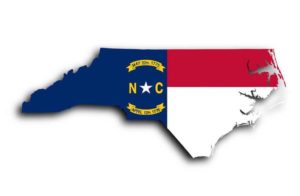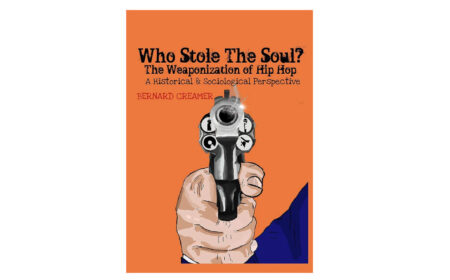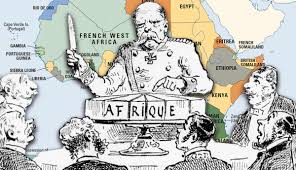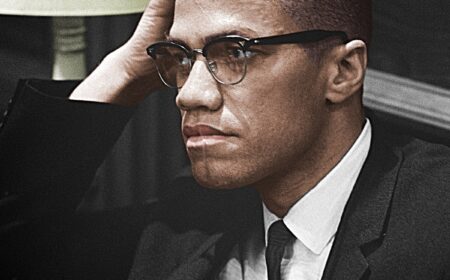Corporations Boycotted North Carolina over the Bathroom Bill, When Will They Stand Against Racial Injustice?
As the events unfold in Charlotte in the aftermath of the murder of Keith Scott — another Black man by police — questions arise as to what it will take to bring about real change in the realm of racial justice in North Carolina, and the role that corporate America will take.
As part of the so-called “new” South, with a large corporate presence and urban professional transplants from the North, the state wants to have it both ways. President Obama won North Carolina in the 2008 election, and a city such as Charlotte represents growth, progress and diversity, as The Washington Post reported, with “buttoned-up business (a banking center, an airline and retail hub), a multicultural melting pot and a farm-to-table haven.”
And yet, the state has elected a Republican-led, white supremacist state government, with a governor and a legislature that has sought the wholesale deprivation of Black voting rights, leading to the NAACP-led Moral Mondays movement.
Then there is the so-called “bathroom bill” known as HB2, which challenges a Charlotte city ordinance regarding gender-neutral bathrooms. And while the legislation has been known as an anti-LGBT law, it also eviscerated local ordinances, making it illegal for localities to expand the protections of state laws governing minimum wage standards, job discrimination and public accommodations, as the Charlotte Observer noted.
 So while North Carolina had positioned itself as more cosmopolitan, progressive and tolerant than its neighbor bordering to its South — South Carolina, which had been embroiled in a Confederate flag debate of late — the state has paid a price with HB2.
So while North Carolina had positioned itself as more cosmopolitan, progressive and tolerant than its neighbor bordering to its South — South Carolina, which had been embroiled in a Confederate flag debate of late — the state has paid a price with HB2.
According to Facing South, while state officials wish to downplay its impact, a corporate boycott of North Carolina has led to losses in the tens of millions of dollars. Over 200 companies and organizations have expressed their opposition to HB2, and they are taking their business out of the Tar Heel state. For example, PayPal canceled its planned $3.5 million complex, Deutsche Bank placed a corporate expansion on hold, and the NBA will take its All-Star Game elsewhere. The purpose of this and other boycotts, Facing South noted, is “to raise the economic and political costs of doing business as usual, to the point that decision-makers — whether lawmakers or corporate CEOs — are forced to change course.”
But what will it take for corporate America to respond to the calls for racial justice, in the midst of police violence against Black people? If they can take a stand against HB2, certainly these companies can demand that local and state governments do more and enact reforms if they want the dollars to continue flowing.
With a high-profile police killing and a continued effort at Black voter suppression — despite a Supreme Court decision rejecting North Carolina’s voter ID law and other voter restrictions — the time seems perfect for corporations to use their political muscle to benefit Black folks. White reactionary lawmakers believe they can get away with disrespecting African-Americans. For example, U.S. Rep. Robert Pittenger, who represents parts of Charlotte and its suburbs, said Blacks are protesting in Charlotte because “they hate white people because white people are successful and they’re not,” as NBC News reported.
And in some cases, with blood on their hands through their role in profiting from slavery, these North Carolina-based companies have a debt to pay Black people. For example, Bank of America admitted its ties to slavery, as two of its predecessor banks had dealings with the slave trade, according to the Chicago Sun-Times.
Further, a third predecessor accepted slaves as collateral on loans, as Your Black World Today reported. Two companies that were incorporated into Wachovia — now owned by Wells Fargo — owned slaves and accepted them as collateral on loans or mortgages. And the founder of R.J. Reynolds, Richard Joshua Reynolds, came from a large slave-owning family of tobacco farmers. These companies can, at a minimum, support a boycott in North Carolina and a movement around racial justice, and provide support to the descendants of enslaved people in the form of employment, scholarships and community programs.
Writing an editorial in NBC News, Rev. Dr. William J. Barber, II — president of the North Carolina NAACP and founder of the Moral Mondays movement — summed it up best when he called the riots in Charlotte “the predictable response of human beings who are drowning in systemic injustice.” It is not about Black people hating the police, he noted, but rather people of all races “rising up against systems of injustice that shield officers who kill but leave millions defenseless.”
Declaring that “it’s the ballot or the riot,” Rev. Barber wrote that as hopeless as things may seem, we know what needs to be done to change the conditions that led to Keith Scott’s death.
“Right here in North Carolina, we have seen how people impacted by unjust policies can come together in coalitions across color and lift up a moral agenda that embraces the good of the whole,” he said. “This kind of coalition movement building is not easy, and we cannot win the change we need in a single election. But every step forward in this nation’s history has come from movements like this one.”





